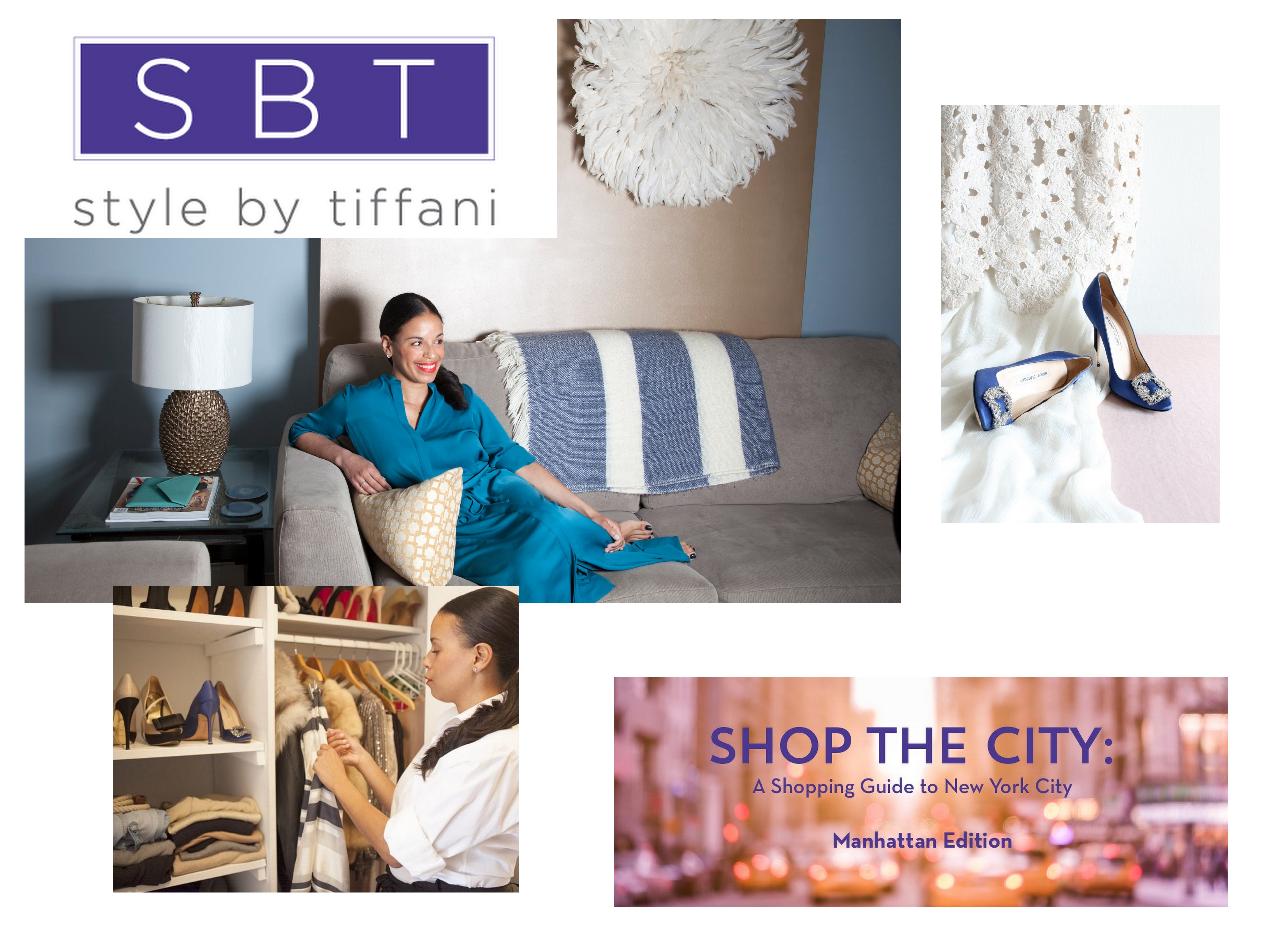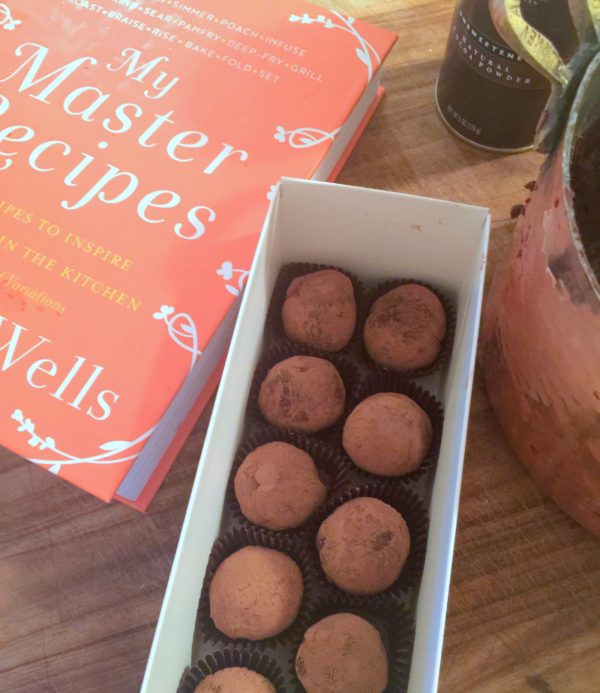Mon, 29 May 2017
~The Simple Sophisticate, episode #157~Subscribe to The Simple Sophisticate: iTunes | Stitcher | iHeartRadio
~The title song of The Hot Sardines' most recent album: "French Fries + Champagne" ~The litmus test which sparked the partnership between Elizabeth and Evan: "Your Feet's Too Big" ~Elizabeth's recommended destination to visit in France: Cancale ~@hotsardines - Instagram pics: Elizabeth with Alan Cummings singing "When I Get Low I Get High"; with Alan Cumming who is featured on French Fries + Champagne; Elizabeth enjoying French Fries + Champagne; The Hot Sardines~ ~The song I have been playing on repeat. "Wake Up In Paris". In our conversation on the podcast, Elizabeth shares her inspiration for the song, as well as how long it took her to write it. Be sure to tune and discover where exactly the inspiration came from for the first two notes of the song. https://youtu.be/ulsK9jvgsAw Petit Plaisir:Elizabeth shared with listeners, not one, but two of her favorite Petit Plaisirs. Have a look below: ~On the road:
~At Home (see below):
|
Mon, 22 May 2017
~The Simple Sophisticate, episode #156~Subscribe to The Simple Sophisticate: iTunes | Stitcher | iHeartRadio
Each time NYC stylist Tiffani Rogers stops by The Simple Sophisticate podcast we begin with a conversation about the most recent trends and fashion events, but then it leads to a life discussion as we both, women in our 30s who are striving to enjoy the everyday, making it our own as well as reach our full potential while learning from the many lessons life abundantly shares with us. And this interview was no different. As mentioned in the title of today's episode, relationships and how to meet new friends and potential romantic partners are both discussed, as well as inching toward 40 and loving it. Tiffani also shares a couple of life lessons she has learned thus far, and we discover there is one approach we both use to remind us that we are doing just fine in this thing called life. Be sure to tune in. Below are all the links, photos and videos discussed on the blog.
~Past interview with Tiffani Rogers on The Simple Sophisticate:
~2017 Met Gala, honoring Comme des Garçons designer Rei Kawakubo. Red Carpet style discussed on the episode: ~Watch Norma Kamali video on the difference between 21 and 71 here ~Petit Plaisir~Blueberry & Rhubarb Crostata, find the recipe here.
|
Mon, 15 May 2017
~The Simple Sophisticate, episode #155~Subscribe to The Simple Sophisticate: iTunes | Stitcher | iHeartRadioThe more I read about Julia Child, especially in her own words, the more I find inspiration regarding how to successfully journey through life. Saying yes to life, remaining curious and refusing to be intimidated by obstacles, unknowns and not knowing how to do something, we all could probably learn something from Julia Child whether we enjoy cooking or just eating good food. And the lessons she provides are applicable in every arena of our lives. After reading and loving My Life in France, the Petit Plaisir in episode #152, I wanted to come up with a list of some of the life lessons unearthed about how to navigate each of our journeys successfully in Julia's own words. Below are six, but there are far more. If the list intrigues you, I highly recommend picking up her memoir which was published just after her death, as she herself, along with her nephew having completed it just prior. ~Be sure to tune in to the audio as far more detail and conversation are shared on each point. 1. Listen to what stirs you. When a passion worth pursuing presents itself, you'll know."Now that I had started writing, I found cookbookery such fulfilling work that I intended to keep at it for years and years." 2. If we choose to, we can change."After driving to Rouen, we stopped in for lunch at La Couronne, where we ordered exactly the same meal that we'd had on my first day in France, more than two and a half years earlier: portugaise (oysters), sole meunière, salade verte, fromage blanc, and café filter. Ah me! The meal was just as sublime the second time around, only now I could identify the smells in the air quicker than Paul, order my own food without help, and truly appreciate the artistry of the kitchen. La Couronne was the same, but I had become a different person." ~During the summer of 2018, I had the opportunity while in northern France, to dine at La Couronne. Have a look at my experience in the video below: 3. Self-doubt is natural, and a sign that you truly care about what you are trying to do. Continue to push forward."Ah me. There was still so much to learn, and cooking was only half of it. I felt I'd have to teach at least a hundred classes before I really knew what I was doing." 4. Often the first rejection is a test to determine your true desire."I sighed. It just might be that The Book was unpublishable. I wasn't feeling sorry for myself.I had gotten the job done, I was proud of it, and now I had a whole batch of foolproof recipes to use. Besides, I had found myself through the arduous writing process. Even if we were never able to publish our book, I had discovered my raison d'être in life, and would continue my self-training and teaching." 5. The key to delicious food is quality ingredients."This is the kind of food I had fallen in love with: not trendy, souped-up fantasies, just something very good to eat. It was classic French cooking, where the ingredients have been carefully selected and beautifully and knowingly prepared. Or, in the words of the famous gastronome Curnonsky, 'Food that tastes of what it is'." ~TSLL Capsule Menu (how to create it and the Fall Sample Menu) |
Mon, 8 May 2017
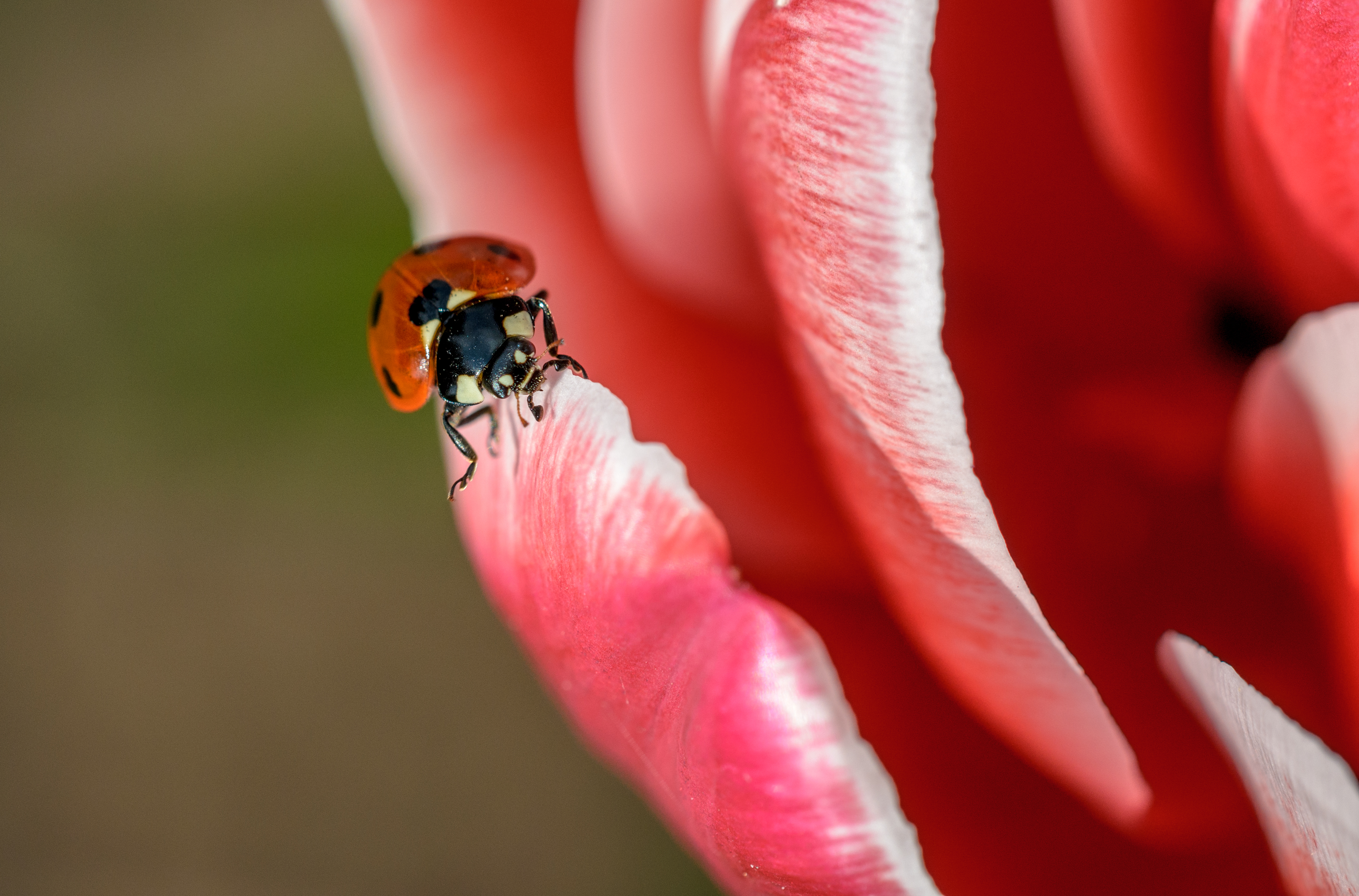
"May your choices reflect your hopes, not your fears." —Nelson MandelaAmelia Earhart, at the age of 23, had a dream awoken within her that she could not explain. Filled with both fear and pleasure, she "knew she had to fly". Julia Child was determined to change the dining, cooking and eating experience of Americans, also known as the "servantless cook". At the time, no one had written, nor demonstrated how to successfully engage with real food, delicious, satiating cuisine as she had (and as I know, many of you are quite aware being Francophiles ;)). And so it was hope, not fear that she, as well as Amelia Earhart pursued their vision with dogged perseverance. It was the nebulous vision held within, unknowingly willing their dreams to materialize, how and when they could not know. I am reminded of Nelson Mandela's quote often with the many different new experiences and people I have had the opportunity to encounter in my now nearly two years living in Bend. A multitude of unknowns dance about untamed in my life that have tested my confidence, faith and desire. From the desire to become once again a home-owner, to producing a second book of quality and inspiration for devoted long-time and newly introduced readers of living simply luxuriously to finding and cultivating real love and friendships based on trust, curiosity and similar passions shared authentically, just to name a few. And it is at times of doubt and unknown situations, that self-preservation can be the default my mind wants to revert to. After all, it is a rare individual to travel unscathed by pain, loss, hurt and disappointment through life; and therefore, it is only natural to allow the mind, when it recognizes seemingly similar behavior equivalent to a pain-inflicting person from our past to put up its defenses, assume the worst and no longer step forward. But such behavior is to ignore Mandela's directive, such behavior is to make a choice that reflects our fears. And when we continue to make decisions that reflect our fears, we are no longer building a life in which we can thrive striving toward our fullest potential; no, instead, we are merely surviving and watching pass by beautiful opportunity after beautiful opportunity, of the life we have not yet experienced, but could if only we would make choices that reflect our hopes. Last week, I began to make firm plans for a summer holiday in 2018. Money has been invested, dates have been confirmed, rentals have been secured. While I am not sure how all of the details will come together or even exactly how long I will be away, I at least know a dream I set in 2011 will be taking place. I chose to build a life based on hope. I chose to believe that the pieces would gradually fall together if I set out the invitation enabling them to materialize. I chose what I am excited about, rather than what I am fearful of. To have hope may not seem to be enough, and I would argue, while it isn't enough, it is a significant part of the foundation of the beautiful life we wish to build for ourselves and those we love. Think of it as building a sanctuary in the country, complete with koi ponds, long, tree-lined lanes and thoughtfully planted perennials that awake in their designated seasons in order for a full year of natural beauty. Such a creation, while yes, taking time, also requires of the dreamer to plan, design and educate themselves, but then act in a manner that involves decisions that open the door to the possibility of ample and abundant beauty. Conversely, a life built on our fears resembles a fortress of stone, iron walls, gates, anything to protect the individual(s) inside from being penetrated by the unknown. No engagement with the outside world unless deemed fit and suitable. No plan except to build higher walls that are no more natural and healthy, let alone beautiful, when it comes to a well-lived life than forced solitary confinement. "Worry retards reaction and makes clear-cut decisions impossible." —Amelia Earhart Yes, the former example leaves us open, leaves us more vulnerable, but it also invites the natural world to thrive. The seasons to work their magic, relationships to grow and mature, life to move through its cycle and for the residents to appreciate each step. Whereas the fortress controls everything, or creates a way of living that presents a façade of having everything under control. When in actuality, the beauty that could flourish is killed due to lack of sunlight. In other words, hope is driven asunder. No, we will never know how everything will work out. We will never know precisely when the economy will ebb and rise or why prior to the event that sparks the change. We will never know when we might run into that person that captivates our attention more than anyone we have ever met before. We will never know when we will hear yes, or when we will hear no. We will never know when our time will be up or for those around us. We will never know anything except how we choose to respond to any situation. Having hope doesn't mean we are being fool-hearty. Having hope doesn't mean we cannot do our homework. But when we are left with unknowns, choose the hopeful outcome rather than the fearful one, and your behavior and words as you interact and engage with the world will reflect this choice and thus the energy that is reflected back to you. A funny, and aha moment awareness I had recently is that not all of my negative defaults have been a result of personal experience. Some of my negative, self-protecting defaults have come from the media, from plots and tales that are told as entertainment and some as cautionary tales. Now most, I have recognized were experienced unconsciously as a younger child and adult, and so the lesson for myself is to feed my life experience well. Not only with the entertainment, literary journeys and news I consume, but also with the people I spend time with. What conversations, what lives, what tales are shared? No, we must not sanitize our lives; we must know what is going on in the world; we must be aware of suffering to an extent so that if nothing more we can be a part of the effort to alleviate it; we must be conscious citizens. But then we need to get in our lane. A lane that is based on self-awareness, clarity of direction and a mind that is constantly being fed and nourished and live our lives well. But how do we that, especially when at times it will feel as though living in fear is far smarter? First, vent or express your frustration in a healthy manner: understand that you are not seeking a solution, but rather a means to express and release the frustration. And then do not dwell. Move forward. You are human to feel frustration, maybe even anger, but in recognizing that we cannot control everything, we recognize what we can control how we respond in such moments. Second, and most powerful, let go of the outcome. We can only control our behavior, our thoughts, and our preparation. Focus on these three things and let the others go so that you can enjoy the life you have cultivated for yourself, no matter what life may bring, toss or surprise you with. And as we go about our lives, having invested in hope rather than fear, we are more likely to awake unexpectedly to a ladybug on our shoulder. "When I was a little girl, I used to run around in the fields all day, trying unsuccessfully to catch ladybugs. Finally I would get tired and lay down for a nap. When I awoke, I’d find ladybugs walking all over me.” —Under the Tuscan Sun "...decide...whether or not the goal is worth the risks involved. If it is, stop worrying...." —Amelia Earhart
~SIMILAR POSTS FROM THE ARCHIVES YOU MIGHT ENJOY: ~Make Your Own Life Rules: How & Why, podcast ~Remember to Embrace Your Unique Journey ~Have a question for Shannon about how to live your unique simply luxurious life? On June 26th, the entire podcast episode will be dedicated to answering your questions on the air. A style question, life, career, relationships, food, France, you name it, she will be answering. Email your question to askshannon@thesimpluxuriouslife.com (you may record your question as well).
Petit Plaisir:—Sweet Palmiers, click here for the recipe (savory is an option as well)
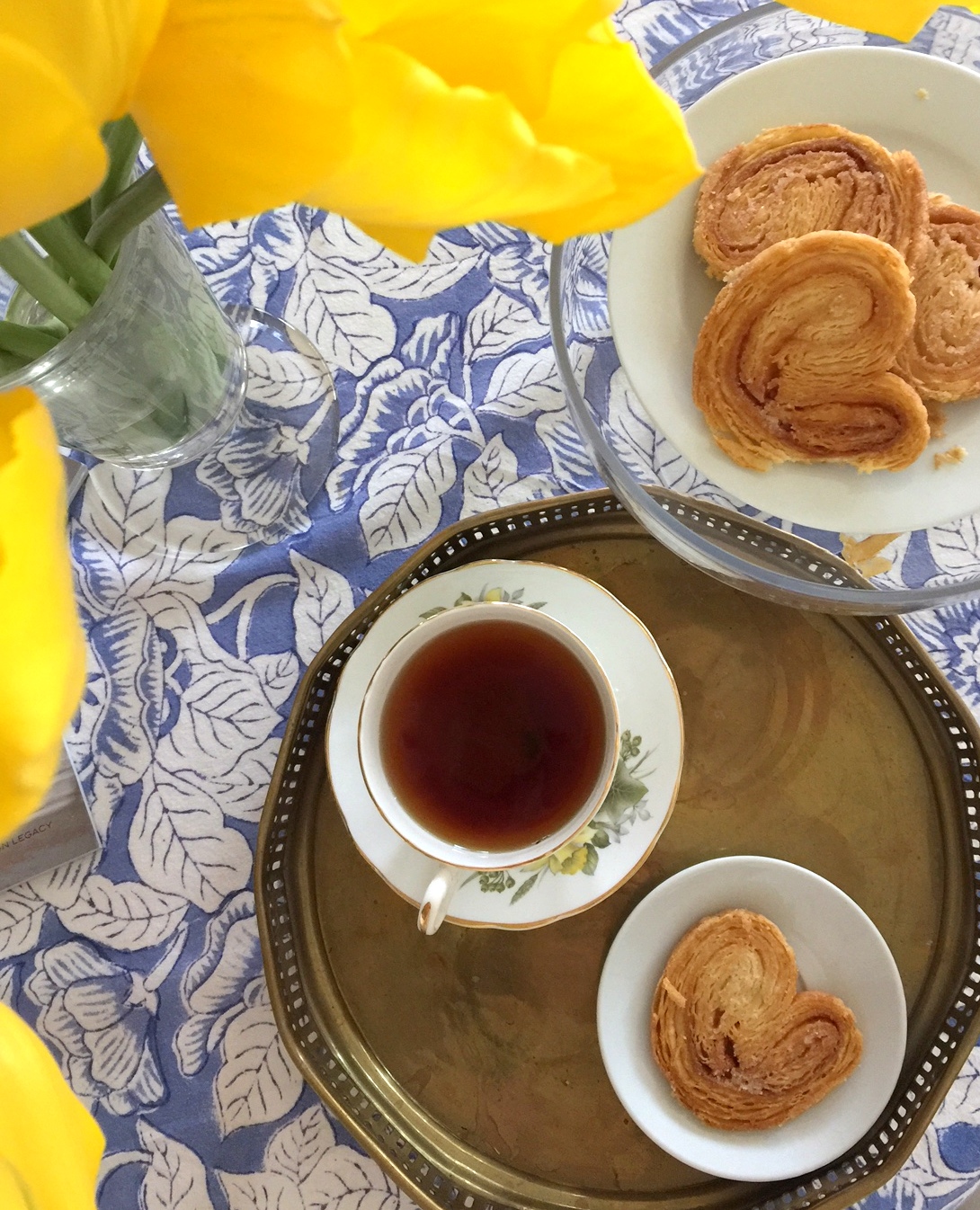
|
Mon, 1 May 2017
 ~The Simple Sophisticate, episode #153~Subscribe to The Simple Sophisticate: iTunes | Stitcher | iHeartRadio
". . . for those of you who are tired of trying to squeeze into constrained categories, who long for integration and wholeness in everything you do, without limits on who you are or who you will become . . . it's time to move beyond labels." —Maureen Chiquet, author of Beyond the LabelLabels by definition provide a boundary, an end, a predetermined area of where something does and does not exist. And while a label on our wine bottle that we have chosen to serve with dinner may reveal the year in which the grapes were harvested or where a particular item of clothing or an accessory was made ensuring us of what we choose to support regarding labor, these aforementioned labels are helpful, reassuring and welcoming, but contrarily, labels placed on people, individuals, women, men, different ethnicities, generations, are limiting. In many cases, labels for people have and do lead into stereotypes, all of which are reductive, oversimplified and purposely (by the one placing the stereotype on another) limiting on the group of focus. In all cases, as Maureen Chiquet, the former CEO of Chanel shares in her new book Beyond the Label, "The labels themselves make life more difficult." As a child when grand family-gathering food holidays would arrive on the calendar, it was always the women who were in the kitchen cooking the extravagant meal and after dinner, it was always the women who were in the kitchen cleaning up. I hated the assumption of these roles which nobody conferred with me about. Granted I was a young girl, and I did what I was told, and as a young girl, I didn't know why I felt this way, but as I grew up and still saw this pattern in some instances, I then knew why I had just grave reservations: I didn't want to be in either group, especially not the clean-up group as so much work and effort had gone into the meal. Was it the women's job to cater to the men who sat in the living room, laughing, chatting and sipping their coffee or evening drinks? There was no part of this assumption or label that appeared fair. Now some of the women may have sincerely wanted to be doing the cooking as well as the cleaning, but I know I was not the anomaly. Who wouldn't want to be fed and relax after the meal? I share this experience with you not to complain, I am adamant that while I love cooking, the clean-up task should at least be shared, especially if it is a dinner for two as a way of thanking the cook or providing more time to chat and unwind together, but to offer up the conversation about the roles we inhabit and why we do so. Often we step into roles not because we have an earnest desire to clean the kitchen, per say, but because we've seen others do it before us and that is "just the way it is done". If we constantly adhered to this way of living life, women would still be domestic property of their husbands with no means to be independent. Needless to say, roles should be questioned to determine who is benefiting and why such a role is being perpetuated. The labels and roles we embody throughout our lives should be in accordance with the individual, regardless of sex, regardless of social standing, regardless of . . . well, pretty much anything. It may seem safe to do what has been done before, but it is limiting, it is squashing of the incredible gifts each of us has to offer not only to the world and those we choose to share our lives with, but to our spirit and true contentment as we experience the life we have been given. Whether it's the assumption that the teaching profession is best suited for women because they are born nurturers (a false assumption, and a limiting label by the way for all the men who are innately nurturing as well) or the assumption that tall men with deep voices are better leaders (why? Because . . . they can sing bass and have to duck to get through the door? The last I checked, neither abilities were needed to lead successfully.), we reduce the potential to flourish and find the best fit for every individual when we place labels based on exterior appearances. As Maureen Chiquet points out immediately in her new memoir and life guide, she "hates labels and boxes". And it was her fondness for the French culture that drew me further into her book as she shares in her introduction, "It wasn't just beauty that the French seemed to live for and breathe in, but a kind of freedom that emboldened me to radically extend the border of my more conservative Midwest childhood in the 1970s." Her curiosity is what opened the door to recognizing that the labels that were being placed on her, or she felt being placed on those around her were inaccurate and soul-depleting. And it was her curiosity that led her to achieve the life and professional success which she leads us through as readers. She listened to the voice within, she was fortunate to have parents who encouraged her curiosity and didn't limit her dreams, and she was courageous enough to do even when she didn't know what the outcome would be.
Today I'd like to share with you 24 sage words of advice from Maureen Chiquet's new book, released last month as a means of encouraging us all to examine the labels we accept to be placed upon us and come to understand why so that we might let go of those that are limiting and remove all together labels or at least help to redefine or change the world's understanding of the possibilities of said labels that we may fall under at different periods of our lives. 1. Listen to your curiosities and follow where they lead you "It's often a matter of following the whispering intuitions and inkling that defy standard categories such as college major or job title . . . I do know the kinds of attitudes and sensibilities, the questions and the curiosities, that will lead you on paths to self-discovery, beyond recognized borders and conventions, and well beyond the labels that others want to use to define you." 2. Reclaim femininity on your own terms "Being a woman [is] not a handicap but an advantage, a source of strength." Simply by reading the word "femininity" we may have an idea of what the word entails, but we immediately limit in our minds what a woman is capable of being if we provide a definition beyond the actual definition "the quality of being female; womanliness", we limit what is acceptable for someone who is a female to do. In other words, there is no one way to be a woman. With every woman in the world, there is a different way to be, just as there are more than seven billion people in the world, there are seven billion different ways to be. Take a moment today, tomorrow or sometime soon to examine how you live your life that assumes behaviors and roles you partake in merely because you are female. Who set those rules? Why do you follow? Does it sit well with your being? Some women, no matter society's expectations will revel in wearing make-up and pearls, while others will be out on the lacrosse field at six in the morning training with their teammates forgetting entirely about wearing any sort of make-up. A woman is simply a woman for the sake of biology, that is all. Beyond that, reclaim your own definition. 3. Redefine how a leader leads "I started to understand that if women weren't rising to the top more often, it wasn't only because they weren't 'leaning in' or weren't just as ambitious as their male counterparts. It wasn't just because corporate policies didn't allow enough time for maternity leave or the flextime needed to raise families. These things were, and still are, crucial and must be addressed. But the underlying issue, the nut no one had cracked, was what kind of leadership we value and how we teach, assess, and promote 'good' leaders in all organizations —whether women or men." 4. If you feel something is missing, trust the observation of the void and look beyond "the world's obstacles, rigid structure and set definitions." To be able to look beyond, we must first look within. We must become so well in tune with ourselves that we know when something is not present and needs to be, even if we cannot put our finger on it at the moment. From my own experience, even at an early age, there were many instances, people, situations and ways of living that just didn't make sense, and so as I began to build my own life, I explored, I asked, I became more informed and I stepped out of what I had been introduced to by others and began introducing myself to ideas that were new to me until eventually I found what made far more sense disregarding whether others approved or not. 5. Follow Coco Chanel's approach to life: learn the rules, then step outside of them "Chanel seemed to break every rule by combining seemingly opposite elements and by elegantly subverting convention to create something breathtakingly timeless and fresh . . . a woman who refused to blindly accept the aesthetics of her time in order to invent her own." In the rhetorical writing class I teach, one of the first lessons I share is while there are many rhetorical tools an artist/writer/speaker/architect/musician can use, in order to use any one of them, they must first know the standard rules of grammar they are breaking. Therefore, when they choose to use the rhetorical tool, they know why they are breaking it and what effect they hope to provoke. 6. Savor life's beauty When we follow our curiosity, it is a striving toward creating a life that we want to dance with each and every day. And if we are lucky enough, when we are lucky enough, to cultivate this life, we don't want to rush, we don't want tomorrow to come today. We want to savor each and every day. In other words, "slow it down, relish it, take it in fully". 7. Become comfortable with a little discomfort Uncertainty or unhappiness. The two concepts were juxtaposed recently in an article I read, and the point was quickly absorbed. Are we willing to give up a little discomfort in not knowing how or when something we hope for, but deeply want, will occur in order that we may no longer be unhappy? Often we stay in circumstances, or remain under labels that do not fit us because it is what we know. And knowing is, for more than a few, far more comfortable than uncertainty. In the long run however, we only do ourselves a disservice and miss out on the beautiful life we could have led. 8. Let go of external definitions and lenses through which you have been defined and start from scratch. Ask why? "The Artist is no other than he who unlearns what he has learned, in order to know himself." —E.E. Cummings 9. Search until you are broken open similar to the relinquishing of a protective shell In coordination with #7 and #4, many times we do not know what we are missing or what we will find when we step into the unknown. However, the protective shell we are under, that we think is offering us the best possible life, is actually the limitation, the barrier we need to step out from underneath if we are going to realize our own unique potential. It is easy to know and accept this life concept, but I sincerely recognize far harder to put into practice. But, if you are feeling squashed, and keep bumping into a wall that time and time again has demonstrated it is not going to move, try a different path, even if you don't know where it will lead. So long as you head out into the direction that speaks to your curiosities, trust that you are doing yourself a grand favor. 10. Refrain from following prescribed expectations and instead simply "be" and express yourself authentically (and allow others to do the same). Find your tribe. Search out people who sing the same song or at least applaud you for staying true to yourself. Along the way, you may have to let go of those who want you to stay in the lane they became accustomed to you traveling, but model by example and support everyone's mode of travel and path chosen to travel down. When we all become more accepting of different ways of living life, we free each other to step into a lane (or off into the open field) to be what comes most naturally and applaud the unique contributions we all can give. 11. Knowledge allows the magic to happen "Every discipline in the humanities —literature, history, art history, philosophy, or religious studies —teaches us how to question how we see and interpret the world and who we are as human beings." As someone with a bachelor of arts degree, I took classes in art history, communications, history, literature, dance, sociology and a few other arenas in the humanities family that each contributed in their own way to the journey I am on now. I may not have pursued a specific career in most of these fields, but as I examine the careers I am pursuing, all of these classes have offered skills, knowledge and aha moments that helped me connect the dots and have given me a deeper understanding of the world, and thus my journey within it. "[S]he who has the most information wins." —John D. Rockefeller Ultimately, knowledge can only open doors and the beauty is, it can never be taken away from you. Knowledge of the "why"s in the world, how certain religions came to be, why this war was fought and this right denied, etc. are all bits and pieces of a grand puzzle that will help you understand why the labels that may be given to you don't actually fit at all. Allow all that you know and wish to know, as you pursue it fervently to be the key to opening up doors that curiosity leads you to. 12. Focus more on how it will work out and what could go right, rather than getting caught up in the reasons why it cannot be fulfilled (life has a funny way of adhering to what we consume our minds with - self-fulfilling prophecies) "It a little bit like when you are skiing. If you begin to stare at all of the rocks, crevices, and obstacles, you're sure to hit one." 13. Take the first step even if the plan isn't complete "Sometimes, you have to take that first step without a fully formulated plan, follow your intuition, and be ready to go with the flow, just like plunging into oncoming traffic at L'Etoile." 14. Improvise regularly "Indeed, if you only memorize the score, you can be sure to hit the right notes, but will anyone remember your bland tune? The creative spark depends on patience, persistence, and practice, but you have to be willing to take risks, too. To improve requires having a sense of where you want to go, then letting that resonance emanate from deep within yourself, the place where love for your sole expression resides. " 15. Let go of fixed expectations "Letting go of fixed expectations, or at least being willing to upend them for a time, allows the possibility for an act of creation to surprise us, to leave us dizzy with the excitement of discovering something new that, somehow, feels just right, as if we were waiting for it all along." 16. Seek out respect coupled with love "I had never felt love like that from any guy I had dated. It went beyond love; it was the purest form of respect." 17. Find a path that allows your "beauty", your real assets to be be utilized ". . . 'beauty' — my real assets (intelligence, character, judgment, and taste)" 18. Embrace challenging circumstances as they unearth the pearl of a life you truly wish to cultivate "Challenging circumstances and discomfort are often excellent teachers inasmuch as they require us to get closest to what we fundamentally care about." 19. Raw learning experiences exist everywhere in every stage of your journey "No opportunity is ever too small to show you what you can accomplish, and no boss is ever so mean that you can't learn something, even if it's only to show you how not to lead." 20. Empower people and you empower progress "People work harder and ultimately deliver better results when they feel empowered." 21. Be calm, confident, self-aware and clear about where you want to go in order to have success "Horses react to humans in a pure, intuitive way. 'They mirror how we show up. More than eighty percent of our communication is nonverbal, so these nonverbal creatures can reflect back exactly what's going on with us and whether they trust our presence and will follow our lead.' Once you found yourself interacting with, leading, or heading a horse, you learned 'in your body' how to show up differently, how to be attuned to others without losing touch with yourself or your goals." 22. Be the leader of your individual life, manage yourself well to be able to lead others well. "In order to lead — and to get anyone else to follow you — yes, you do need to listen to others . . . a lot. But you also need to be attuned to yourself —your hungers, your drives, and your trigger points. In other words, you have to manage yourself in order to lead others." 23. Understand how to regain your footing and balance "I have found that taking a moment to move away from circumstances where you might feel pressure or triggered —to ask yourself what's most important to you underneath the surface —helps restore your equilibrium." 24. Examine and then release assumptions of how life should be that do not align with your newly defined self "There is no one right way. There is not one label you can slap over your family and call it perfect . . . It is the labels themselves that can make these choices even more difficult. If we don't unpack these assumptions [women should bear more of the parenting responsibility than men even when we wholeheartedly pursue our careers], if we don't stop and ask why it is so, we just end up exhausted and discouraged . . . by letting go of definitions others might set for us as well as the idealized images we have created ourselves . . . we get what we most want . . . the trick is knowing what it is you do actually want and being clear with yourself and your partner on how you both want to lead and prioritize your lives." One of the most perplexing answers I struggle to give is when somebody asks me what I do for a living. I fluctuate between "Which should I say first: a teacher or a writer, or better, a blogger?". It will depend upon the person I am speaking with, but most often, when I state that I am a teacher, there is a handful of assumptions that come along with it, most of which are untrue in my case, but you don't want to dive into a deep philosophical discussion necessarily. As well when I open with "I am a blogger", some become even more curious and others dismiss the title entirely. But the truth is, I feel limited by each, and perhaps you do as well, which is why Beyond the Label resonated with me. People ask such questions: what do you do for a living? are you married? where did you grow up? as a means to better get to know the person they are speaking with. The motivation is largely friendly and benign, but as most of us know, the answers, especially upon a first meeting, immediately build assumptions in the listeners mind - for better or worse. And so perhaps the fault is on us all, but that means all of us can play a role in moving beyond the label. "By moving beyond the label, we can all make our workplaces and our lives more effective and more equitable." "By releasing ourselves from these restrictions, we have a shot at creating success on our own terms."
Petit Plaisir ~Diana Krall's new album Turn Up The Quiet (to be released May 5, 2017), her 13th album, 5-time Grammy winner~view her tour schedule here ~The list of 11 songs on the album: 1. Like Someone In Love 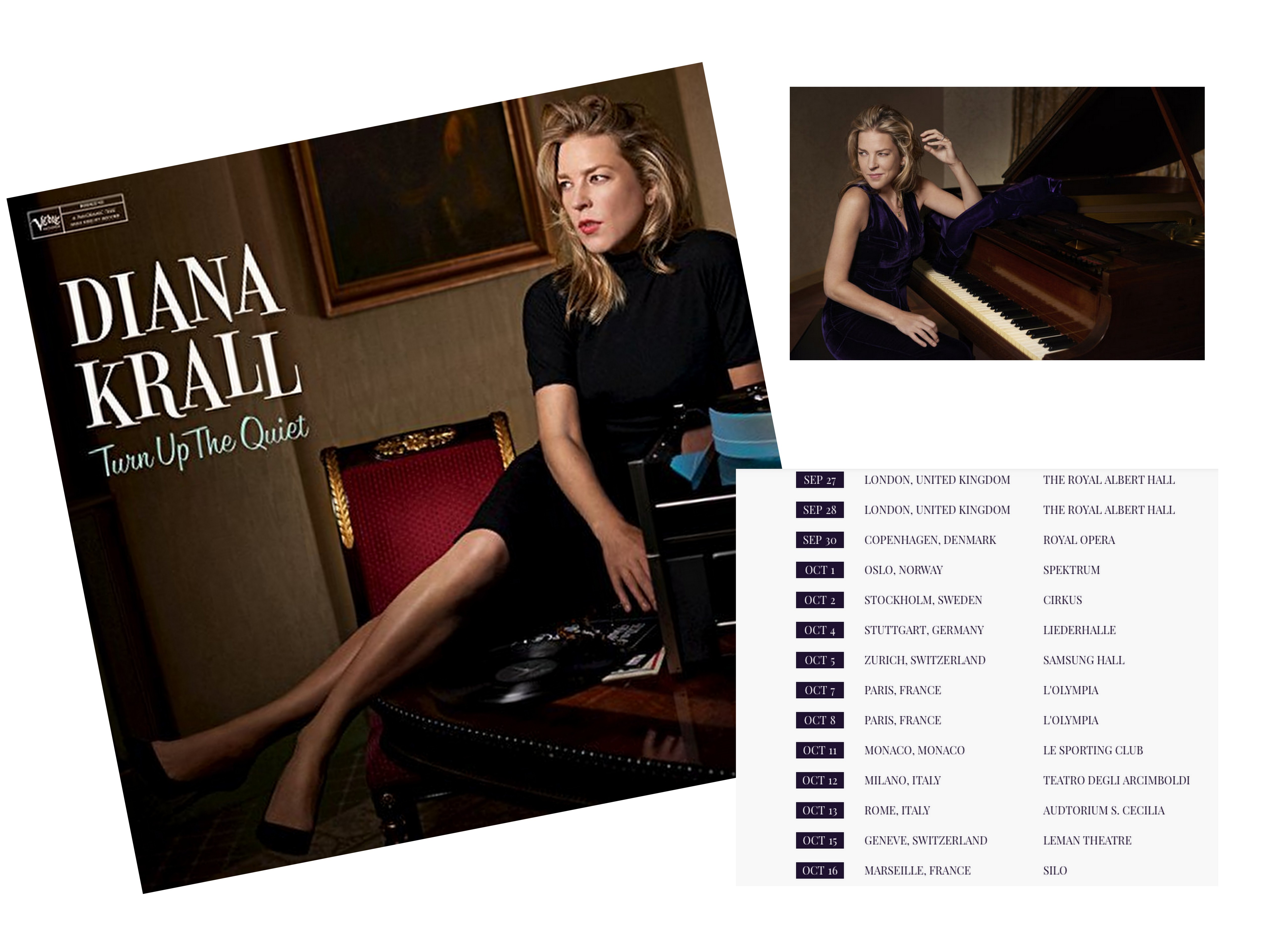
|
The Simple Sophisticate - Intelligent Living Paired with Signature Style

Categories
lifestylemoney
fashion
general
food
relationships
beauty
holidays
style
decor
etiquette
technology
dating
clothing
news
happiness
health
finances
self-help
feminism
french living
communication
inspiration
self-improvement
cooking
French-inspired
podcast
travel
entertaining
Archives
AprilMarch
February
January
December
November
October
September
August
July
June
May
April
March
February
January
December
November
October
September
August
July
June
May
April
March
February
January
December
November
October
September
August
June
May
April
March
February
January
December
November
October
September
August
July
June
May
April
March
February
January
December
November
October
September
August
July
June
May
March
February
January
December
November
October
September
August
July
June
May
April
March
February
January
December
November
October
September
August
July
June
May
April
March
February
January
December
November
October
September
August
July
June
May
April
March
February
January
December
November
October
September
August
July
June
May
April
March
February
January
December
November
October
September
August
| S | M | T | W | T | F | S |
|---|---|---|---|---|---|---|
| 1 | 2 | 3 | 4 | 5 | 6 | |
| 7 | 8 | 9 | 10 | 11 | 12 | 13 |
| 14 | 15 | 16 | 17 | 18 | 19 | 20 |
| 21 | 22 | 23 | 24 | 25 | 26 | 27 |
| 28 | 29 | 30 | 31 | |||
Syndication

 Jazz and France is a coupling that instantaneously grabs my attention. Add a woman who has followed her passion, appreciates the moment and lives life to the fullest all the while staying grounded in this ever-changing thing called life, and I want to get to know her further. Elizabeth Bougerol is not only the front woman of The Hot Sardines vintage jazz band that is making "the old sound new" again, but she is also the co-founder with the bandleader and man at the piano, Evan Palazzo (above with Elizabeth, bottom right). The band's music has been described by The Times (London) as "simply phenomenal" and their music has reached the No. 1 slot on the iTunes Jazz chart in the U.S. and internationally. With songs in both English and French, their first two albums are a must-have on your jazz playlist. Elizabeth joins me on today's episode to talk about jazz and the journey she has been on as The Hot Sardines have begun to catch many an ear of fans and critics alike over just a few short years. As well we discuss passion projects, knowing when to leap, redefining the term "stability" and of course we talk about France, where she was born and raised and regularly visits. The discussion continues into the differences between the French and American cultures and the different approaches regarding daily living, and the importance of living in the moment. From food to listening to the voice inside that wants to give something a try that may not align with your perceived self-image to taking advantage of opportunities even if you do not feel entirely ready, today's conversation is one to take 45 minutes out of your day and enjoy. I have a feeling, if you're like me, you'll walk away with at least one (if not many) thought to ponder and apply to your life. See one below, as well as the song (one of two) that is played and discussed during the episode. ~
Jazz and France is a coupling that instantaneously grabs my attention. Add a woman who has followed her passion, appreciates the moment and lives life to the fullest all the while staying grounded in this ever-changing thing called life, and I want to get to know her further. Elizabeth Bougerol is not only the front woman of The Hot Sardines vintage jazz band that is making "the old sound new" again, but she is also the co-founder with the bandleader and man at the piano, Evan Palazzo (above with Elizabeth, bottom right). The band's music has been described by The Times (London) as "simply phenomenal" and their music has reached the No. 1 slot on the iTunes Jazz chart in the U.S. and internationally. With songs in both English and French, their first two albums are a must-have on your jazz playlist. Elizabeth joins me on today's episode to talk about jazz and the journey she has been on as The Hot Sardines have begun to catch many an ear of fans and critics alike over just a few short years. As well we discuss passion projects, knowing when to leap, redefining the term "stability" and of course we talk about France, where she was born and raised and regularly visits. The discussion continues into the differences between the French and American cultures and the different approaches regarding daily living, and the importance of living in the moment. From food to listening to the voice inside that wants to give something a try that may not align with your perceived self-image to taking advantage of opportunities even if you do not feel entirely ready, today's conversation is one to take 45 minutes out of your day and enjoy. I have a feeling, if you're like me, you'll walk away with at least one (if not many) thought to ponder and apply to your life. See one below, as well as the song (one of two) that is played and discussed during the episode. ~

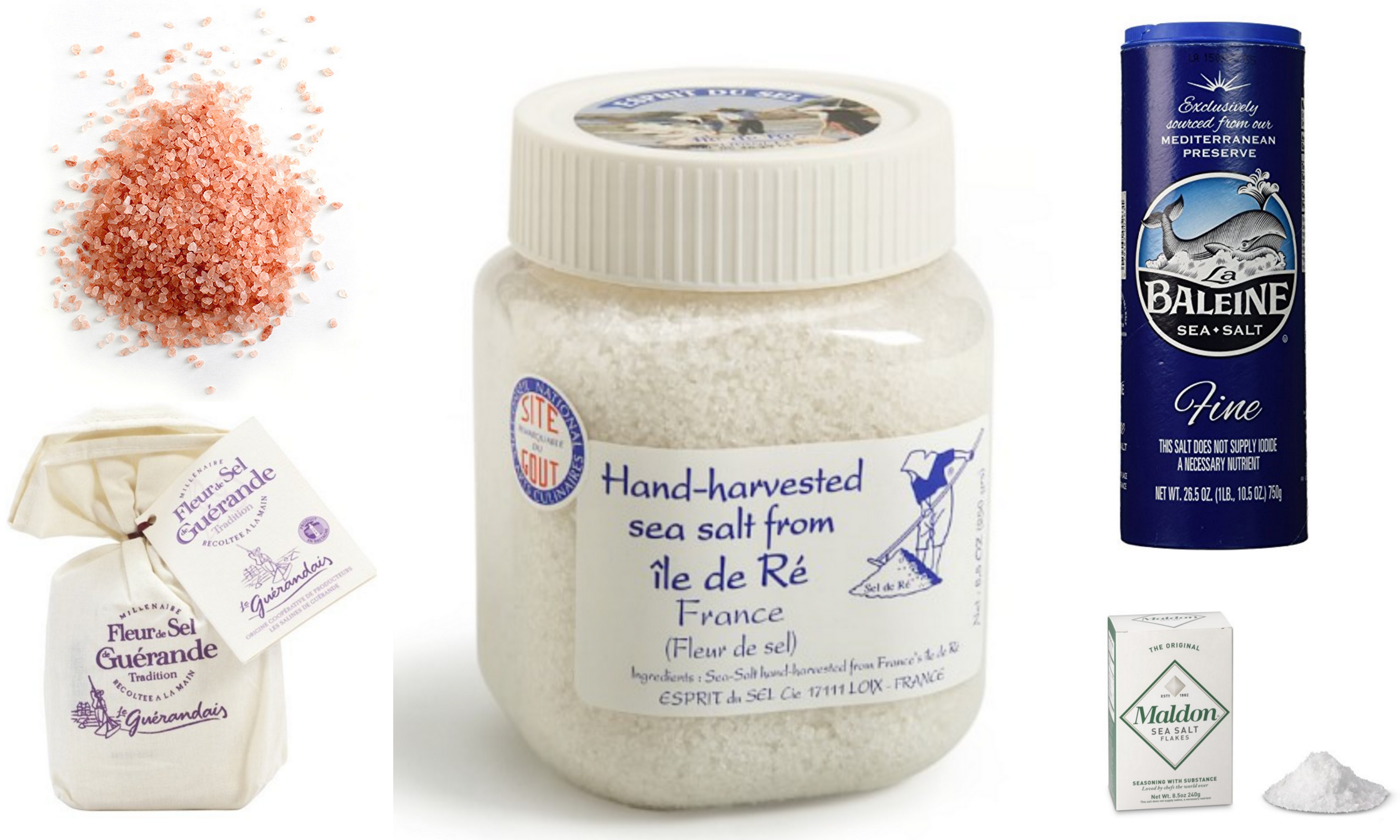
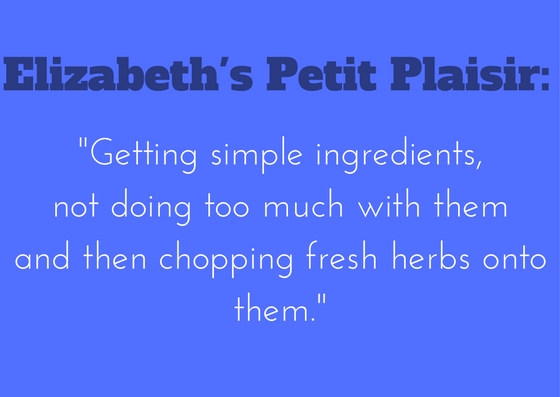 An enormous thank you to Elizabeth and her team for taking the time to join me on The Simple Sophisticate. ~View more episodes of The Simple Sophisticate
An enormous thank you to Elizabeth and her team for taking the time to join me on The Simple Sophisticate. ~View more episodes of The Simple Sophisticate 